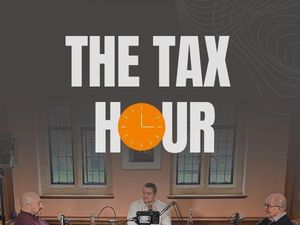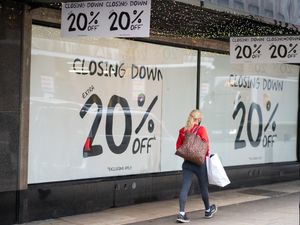Wage growth edges back as unemployment static
UK wage growth has edged back from record highs but earnings are outstripping inflation at the fastest pace for two years, according to official figures.
The Office for National Statistics said average regular earnings, excluding bonuses, increased by 7.7 per cent in the three months to September, down from an upwardly revised and record high of 7.9 per cent in the previous three months.
The data showed that wages rose one per cent after taking Consumer Prices Index inflation into account, the highest increase in real wages since the three months to September 2021.
Britain's rate of unemployment is estimated to have remained unchanged at 4.2 per cent in the third quarter but more cracks are appearing in the jobs sector, with vacancies falling to the lowest level for more than two years, down 58,000 quarter-on-quarter at 957,000.
The number of people unemployed in the West Midlands was at 155,000 –down 1,000 on the quarter and up 16,000 on the year.
Across the West Midlands numbers claiming unemployment benefits, including Universal Credit, fell by 1,290 to 177,940 - 4.8 per cent of the working population.
There was a mixed picture in individual areas. Wolverhampton saw a fall of 125 to 12,180 (7.4 per cent) and Dudley was down by 65 to 9,050 (4.6 per cent).
In both Sandwell and Walsall there was a slight rise of five claimants. Sandwell's total is 13,505 (6.2 per cent) and Walsall 9,520 (5.5 per dent).
Staffordshire's total dropped by 70 to 14,955 (2.8) per cent with South Staffordshire up 70 to 1,720 (2.6 per cent), Lichfield rising by 45 to 1,460 (2.3 per cent), Cannock Chase had 35 more claimants at 2,075 (3.3 per cent) and Stafford was up 25 at 2,025 (2.5 per cent).
Wyre Forest, including Kidderminster, had a fall of 30 to 1,785 (three per cent).
Gery Lyng, employer and partnership manager for the Black Country for Jobcentre Plus, said that the region had seen a reduction in the number of over-50s who were unemployed over the course of this year.
During Older Workers' Week from November 20 to 24, Jobcentres across the Black Country are holding events and running sessions to support more people aged over 50 into work or to progress further in work. They are also promoting the benefits of age diversity with employers.
Darren Morgan, ONS director of economic statistics, said: "Our labour market figures show a largely unchanged picture, with the proportions of people who are employed, unemployed or who are neither working nor looking for a job all little changed on the previous quarter.
"The number of job vacancies fell for the 16th straight month. Nevertheless, vacancies still remain well above their pre-pandemic levels.
"With inflation easing in the latest quarter, real pay is now growing at its fastest rate for two years."
More real-time data showed that the number of UK workers on payrolls rose by 33,000 – or 0.1 per cent – between September and October to 30.2 million, although the ONS cautioned this was subject to revision.
It revised the payroll data for September to a month-on-month rise of 32,000.
Chancellor Jeremy Hunt said: "It's heartening to see inflation falling and real wages growing, keeping more money in people's pockets."
Economists said the drop in wage growth, together with last week's official data showing a stalling economy with zero growth in the third quarter of the year, would likely persuade the Bank of England to hold off from further interest rate rises.
Policymakers at the Bank are watching wage growth intently, with the recent record highs having been a cause for concern in its battle to bring sky-high inflation back down to the two per cent target.
Rates are now widely seen as having peaked at 5.25 per cent and with the threat of recession looming large, some economists believe the Bank will move to begin cutting borrowing costs in 2024.
Jane Gratton, deputy director of public policy at the British Chambers of Commerce, said: “There are clear signs of a cooling off in the labour market, with vacancies continuing to trend downwards and unemployment remaining static.
“But employers are still struggling, as wages continue to outpace inflation and the impact of 14 consecutive interest rate rises starts to bite. It is also a concern that the flow of inactive workers back into employment appears to have stalled.
“A thriving economy needs a skilled and flexible workforce in every region and sector. That’s why the UK Government and employers need to invest now to address the skills shortages that are holding everyone back."
Michael Stull, director at ManpowerGroup UK, said: “As cost-of-living pressures combine with significant talent gaps, wage growth at 7.7 per cent in the quarter to September 2023 remains high and continues to be a keen area of focus for employers and candidates alike. Our advice to organisations who are facing this perfect storm of high inflation, skills shortages and economic stagnation, is to think carefully before making pay increases. While uncertainty remains so prevalent, our recommendation is to look instead at ways to retain existing staff by bolstering benefits packages and by offering opportunities to upskill and reskill, especially across the areas where talent shortages prevail."





